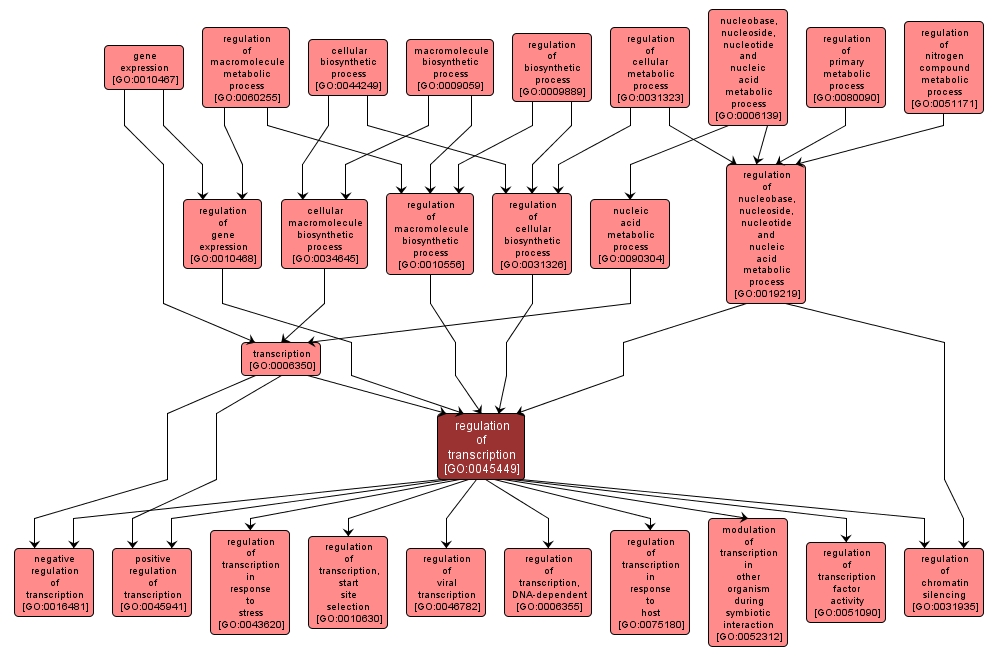GO TERM SUMMARY
|
| Name: |
regulation of transcription |
| Acc: |
GO:0045449 |
| Aspect: |
Biological Process |
| Desc: |
Any process that modulates the frequency, rate or extent of the synthesis of either RNA on a template of DNA or DNA on a template of RNA. |
Synonyms:
- regulation of cellular transcription
- GO:0061019
|
|

|
INTERACTIVE GO GRAPH
|














